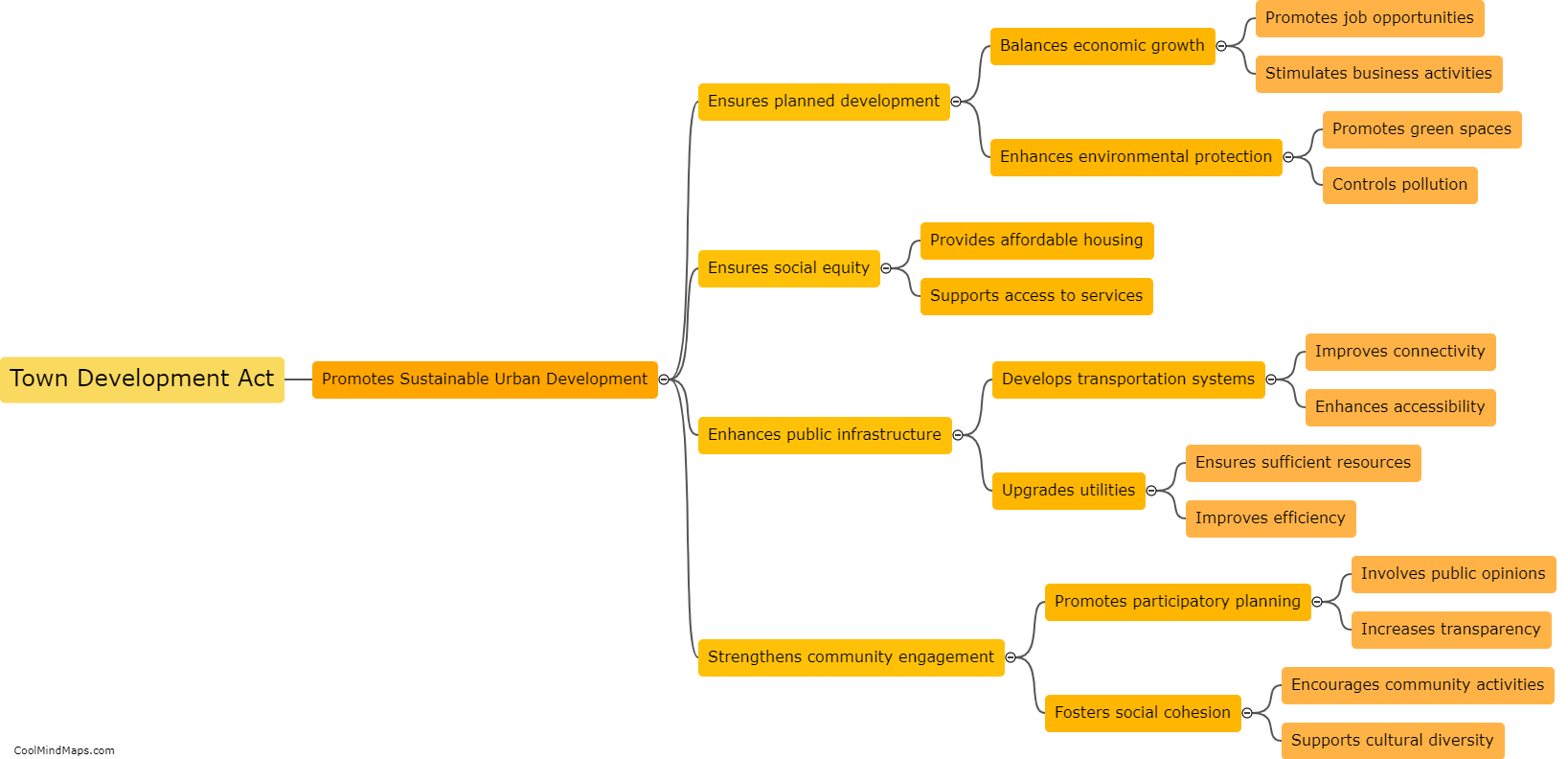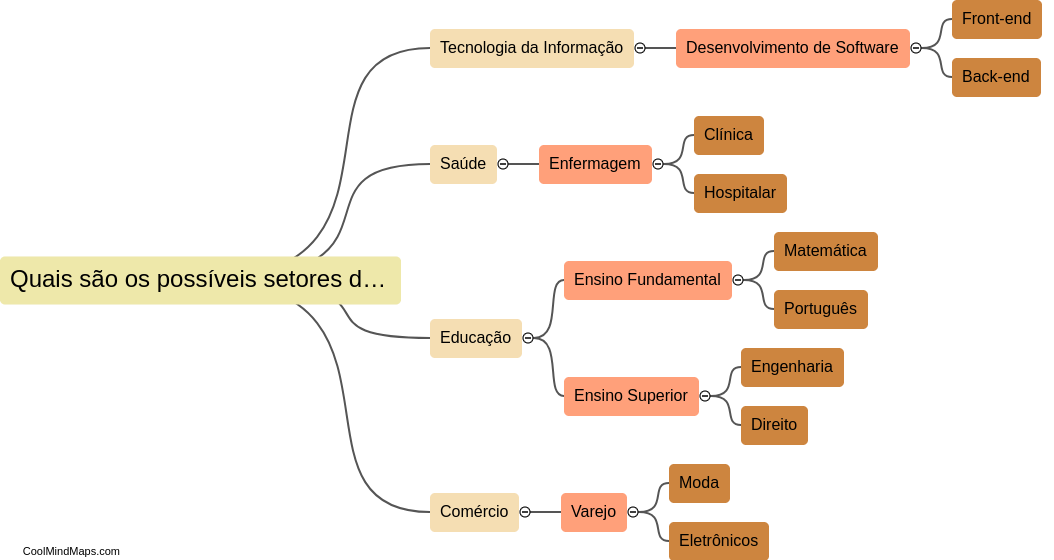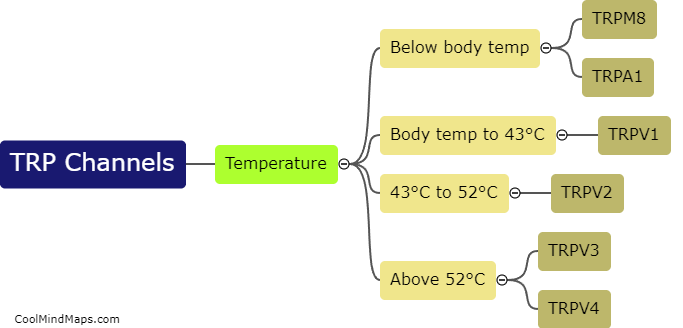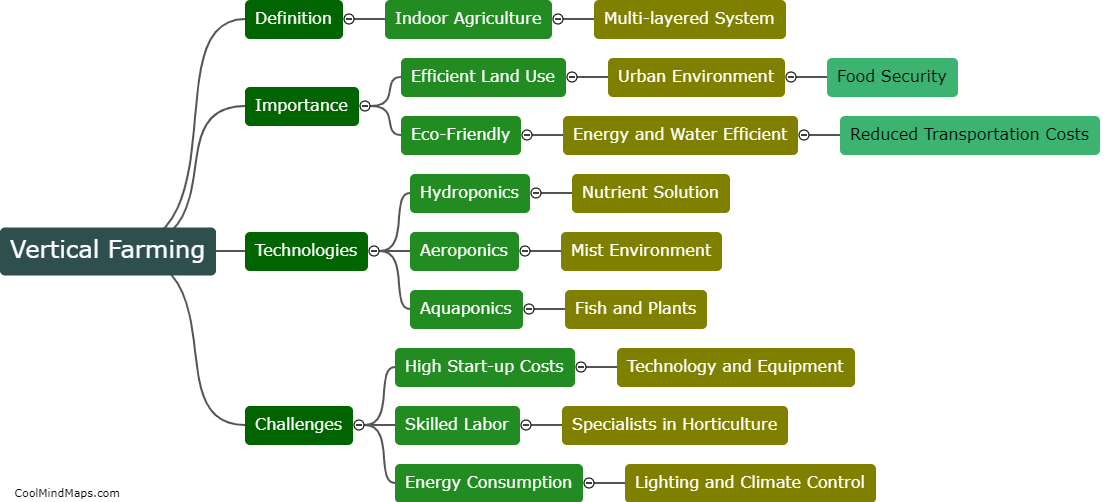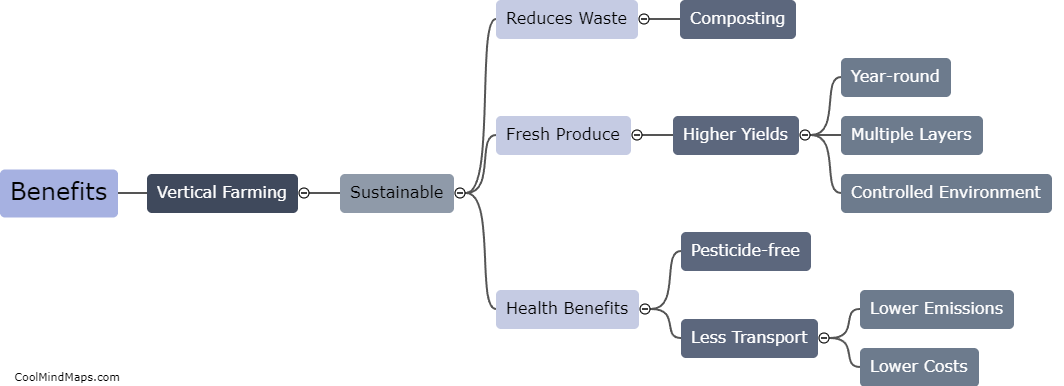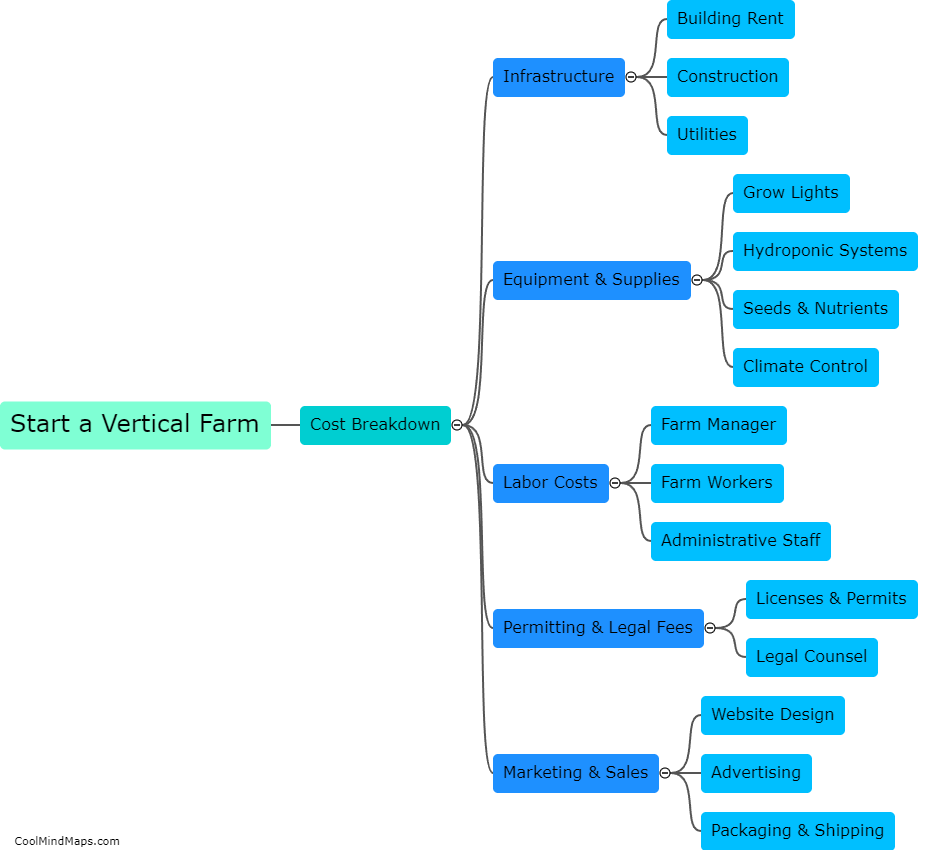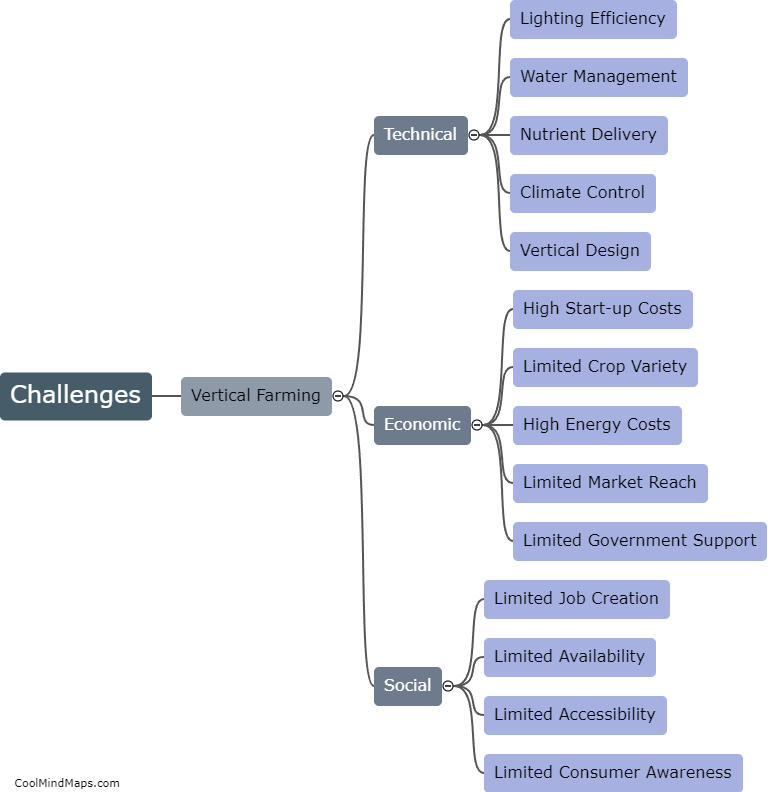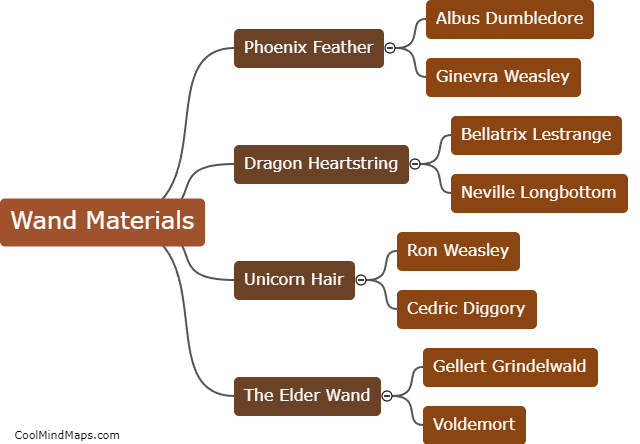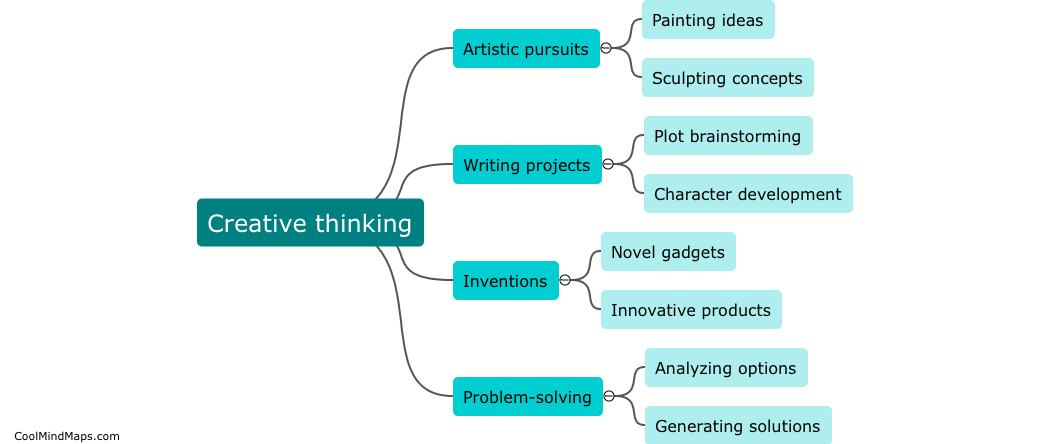Is vertical farming sustainable?
Vertical farming is viewed as a sustainable agricultural method that works by growing crops in vertically stacked layers. The practice offers several advantages over traditional agriculture, including reduced land use, efficient utilization of water and sunlight, and reduced dependence on pesticides and herbicides. However, critics argue that the overall sustainability of vertical farming depends on various factors such as energy consumption, use of non-renewable resources, and the type of crops grown. While the technology has shown immense promise, its overall sustainability still needs to be evaluated over the long term. Therefore, as with any farming technique, it's important to strike a balance between productivity and sustainability to ensure a sustainable future.
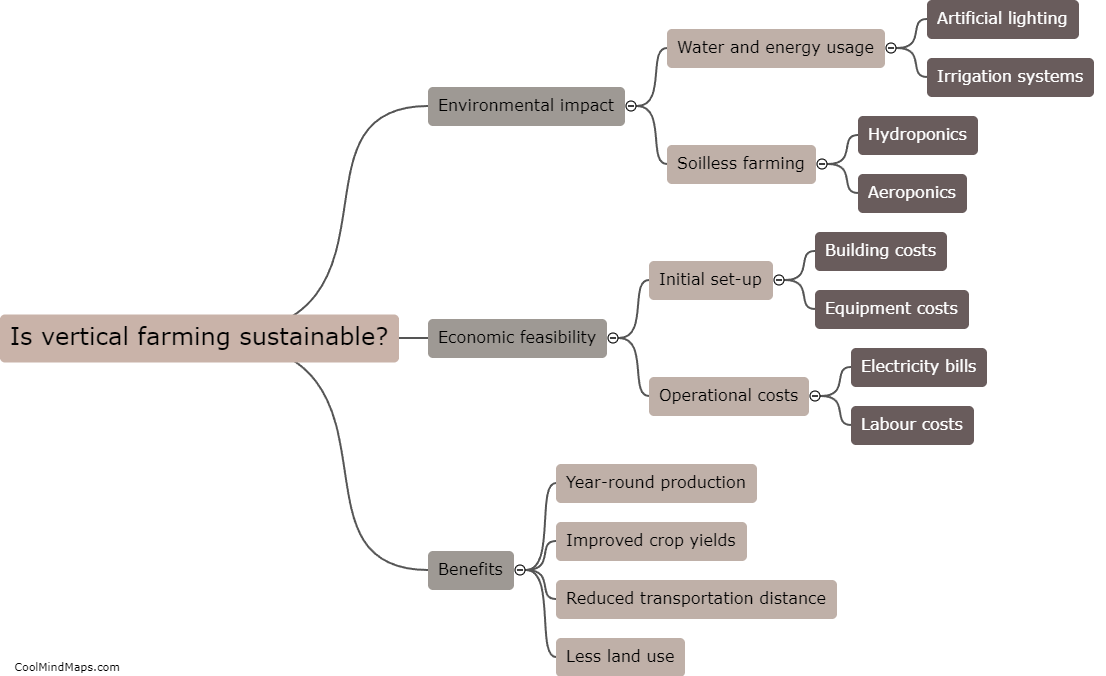
This mind map was published on 17 May 2023 and has been viewed 113 times.
